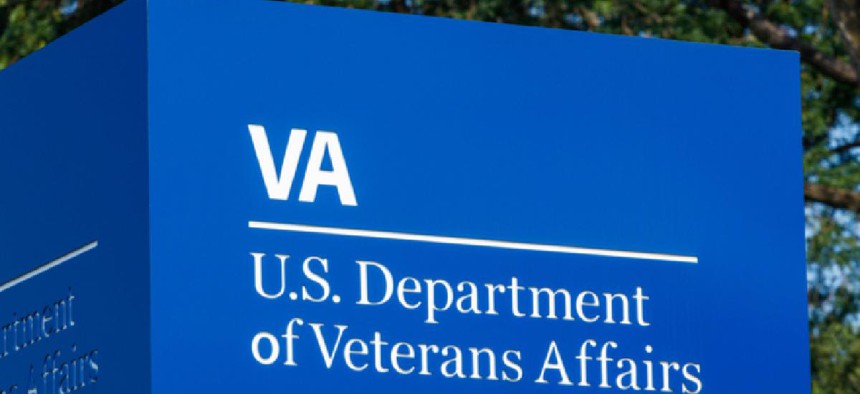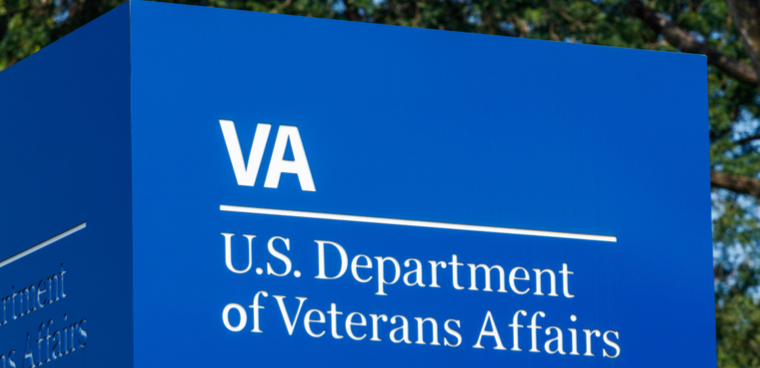VA medical staff push for more PPE, agency bill of rights

As more patients and staffers contract coronavirus infections, employees are seeking more personal protective equipment, collaboration with management and hazard pay.

The Department of Veterans Affairs is facing a rapid increase of COVID-19 infections and deaths among its patient population, and medical staffers are concerned that they're not getting enough personal protective equipment (PPE) to stay safe during patient care.
As of April 18, VA reported more than 5,300 positive cases among its patient population and 315 inpatient deaths.
Employees are being infected as well. According to the American Federation of Government Employees, 1,100 VA employees have tested positive for COVID-19, and as of April 13, seven have died.
In response to complaints about the lack of PPE, VA's top medical official, Dr. Robert Stone, the acting head of the Veterans Health Administration, emailed staff on April 15 to say that N95 masks would be issued daily to all employees and mask would be provided "to those directly in contact with COVID-19-positive patients."
AFGE has cited rationing of PPE and VA leadership asking employees work without protective equipment without consulting the union or respecting existing bargaining agreements. In March, it filed a lawsuit to force the VA to grant hazard pay to its frontline workers.
Sheila Elliott, who works at a VA facility in Hampton, Va., and is the president of AFGE Local 2328 said that PPE was in such short supply at her facility that employees had to go for extended periods without changing their masks or gloves, and that only surgical masks were available instead of the recommended N95 respirators.
"We are not receiving the proper staffing, personal protective equipment, education and communication from the VA, or isolation rooms we need to safely care for COVID-19 veterans. This is unconscionable," the petition stated. "At a moment when we are being asked to step up and protect people, we must be able to protect ourselves as well."
Because masks were in such short supply, she said that her fellow workers had to go for days without discarding them. "Before the coronavirus, if an employee didn't change PPE between isolation cases, they would've been disciplined," she said.
"You don't use PPE from patient to patient, that's the issue here. Management [is saying] that they have plenty of PPE but they don't," Elliott said. "They're restricting PPE in a way that is unsafe because staff could spread it to each other through sharing and to patients who might not even have COVID-19. Management said it was a 'rumor' when we said we don't have PPE, which indicates that we're not telling the truth. I'm not lying about anything. It's discouraging to me that our leadership would do this to us when we're telling the truth."
Additionally, GovExec reported April 17 that VA is threatening adverse action against employees with COVID-19 symptoms who are awaiting test results, ordering them to report to work or risk being put into non-pay status.
AFGE employees are looking to establish a Bill of Rights similar to their Environmental Protection Agency colleagues. AFGE, which represents 700,000 federal employees in D.C. and across the U.S., announced the effort on April 16 through its National VA Council. The demands being made are tied to the current coronavirus pandemic, such as asking the VA to provide workers with personal protective equipment, hazard pay for essential workers, weather and safety leave, and granting telework status to employees who don't require face-to-face interaction to work.
The petition calls for the National VA Council and the VA to form a COVID-19 task force that would ensure collaboration at the national and local facilities levels "to enhance communication, coordination and problem solving."


